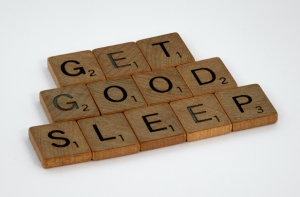What is the Connection Between Poor Sleep and Dementia Risk?
It’s common for people with dementia to experience problems with sleep. But emerging studies suggest that poor sleep could increase the risk of developing dementia. So, what’s the connection? Let’s dive in.
Understanding the Link Between a Lack of Sleep and Increased Dementia Risk
You likely already know that sleep is good for you. Health experts regularly state that everyone should get at least seven hours of sleep a night. Anyone who has skipped a few hours or burned the candle at both ends will be familiar with that exhausted feeling the next day. A poor night’s sleep can make it difficult to concentrate, tolerate stress, and increase hunger.
But, can a lack of sleep increase dementia risk?
Research suggests that getting enough sleep in your 50s and 60s can lower the risk of developing dementia later in life. The study found that people who got less than six hours of sleep each night were 30% more likely to develop the disease. During the study, researchers accounted for other factors influencing sleep, like physical activity, BMI, and other medical conditions. They also separated those with mental illnesses like depression, which are strongly linked to sleep problems.
Dementia Risk Factors and Poor Sleep in Midlife
The research brings to light the importance of good sleep in midlife. Things like shift work, anxiety, work deadlines, and insomnia can make it difficult to get a good night’s sleep. This study shows just how important it is to get good quality sleep throughout your life.
Currently, it’s not exactly known why inadequate sleep could increase dementia risk. Research is ongoing into the connection between sleep and dementia. Does poor sleep cause dementia? Or is poor sleep a sign of early dementia? It’s difficult to give an exact answer.
One theory is that while you sleep, your body flushes out your brain of certain things. Beta-amyloid is a protein that groups together to form Alzheimer’s plaques. When awake, you make some of the beta-amyloid protein in the brain. As you sleep, brain cells shrink, creating more space and allowing substances that gather in the day to be flushed away. The idea is that if you’re not getting enough sleep, your brain can’t perform the detox it needs, and these substances can accumulate and lead to dementia.
Poor sleep is regularly associated with Alzheimer’s disease, cognitive impairment, and various age-related diseases. Sleep is important for the brain and body. The problem is that it’s tough to prove the link between dementia and sleep. The relationship is bi-directional, so it’s tricky to explain cause and effect.
Importance of Sleep for Brain Health
While research into the exact cause and effect of sleep and dementia risk continues, a sleep deficit is associated with negative health. In the meantime, experts recommend you continue to hit seven to eight hours of sleep every night for optimal health. Getting consistent and quality sleep offers several health benefits like:
-
Solidify memories
-
Maintain a healthy weight
-
Support your emotional and mental well-being
-
Manage stress levels
-
Keep your immune system strong
-
Improve abilaity to concertate
Sleep is a crucial pillar of making healthy lifestyle choices. It sits alongside a healthy diet and regular exercise, all of which you need for good mental and physical health. This study really shows the adverse effects of poor sleep in midlife and how it can increase dementia risk. While the precise mechanism at work remains a little more mysterious, it’s a good idea to focus on getting a good night’s sleep.
Avoiding caffeine after midday, reducing stress levels, and creating a nighttime routine are all useful for improving sleep. As humans spend about a third of their lives asleep, getting at least seven hours each night is crucial for a healthy brain and body.
Join Our Community
Archives
- January 2023
- December 2022
- September 2022
- August 2022
- June 2022
- May 2022
- April 2022
- March 2022
- February 2022
- January 2022
- December 2021
- November 2021
- October 2021
- September 2021
- August 2021
- July 2021
- June 2021
- May 2021
- March 2021
- September 2020
- August 2020
- July 2020
- June 2020
- May 2020
- April 2020
- March 2020
- February 2020
Subscribe

Sign up to receive FREE toolkit
From Dr. Hyman, #1 NY Times & Amazon Author
We never spam or sell your e-mail





Follow Our Every Move